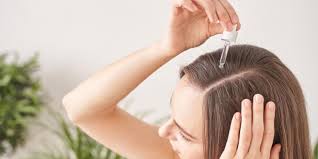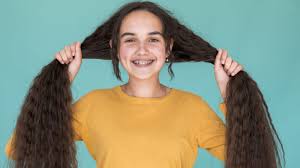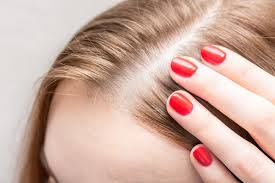
Peptides for hair growth: Do they work?
Are you looking for ways to grow your hair? Peptides are short chains of amino acids that can help. Let’s see if you should use peptides to stimulate hair growth. Peptides are not only good for your skin, but also for your hair.
Peptides are small chains of amino acids that are popular in skin care products because they can help keep skin firm and balanced. They can also be a part of your hair care routine, especially if you care about your hair. Peptides increase the production of collagen and elastin, two connective tissues that play an important role in smooth, firm skin. They also help increase blood circulation to the hair follicles, making them good for your hair. That’s why you should use peptides for hair growth! So what are the best peptides for hair growth?
What are peptides?
Peptides, or glycyl-L-histidyl-L-lysine (GHK), are short chains of about 2 to 50 amino acids that are the “building blocks” of proteins. They’re used in food products because of their important role in fighting and healing wounds, according to a 2023 study published by StatPearls.
In the case of hair, they tell the body to produce keratin, the protein structure of the hair matrix. They help strengthen the hair shaft and strands. According to a study published in the Journal of Functional Foods in May 2024, oral peptide supplements may help reduce excessive hair loss and thinning associated with alopecia.

Best peptides for hair growth
Here are some peptides that can be used for hair growth:
1. Copper peptide
Copper Peptide contains the mineral copper, which is widely used in hair care products. According to a 2022 study published in the Journal of Drug Delivery Science and Technology, copper peptides may help reduce hair loss and promote hair growth in androgenetic alopecia, a type of hair loss in both men and women. They help boost production of elastin and collagen important in making hair strong.
2. Keratin peptides
A 2012 study published in the International Journal of Cosmetic Science found that keratin peptide
is a promising product for hair strengthening.
3. Biotin peptide
A 2017 review published in the journal Cutaneous Adnexal Diseases found that biotin is beneficial for people with hair loss due to biotin deficiency. Biotin Peptides contain biotin, an essential B vitamin that promotes hair growth.
How do peptides help hair growth?
Peptides are known for their important role in supporting healthy hair. Here’s how:
1. Hair follicle stimulation
The body needs two proteins for hair and scalp health: collagen and elastin, and peptides (copper peptides alone, or GHK-Cu) can improve the production of both proteins. These peptides function to prolong the growth phase of hair, also known as the anagen phase, of your hair, thereby increasing hair growth.
2. Improve blood circulation
Peptides help increase blood circulation in the scalp to ensure that the hair follicles receive more oxygen and nutrients. In this way, they help nourish the hair follicles and promote hair growth.
3. Block DHT (dihydrotestosterone)
There is a link between the hormone, dihydrotestosterone or DHT, and hair loss in men and women. This hormone reduces hair follicles and causes thinning of hair. However, peptides help block DHT, preventing hair loss.
4. Reduce inflammation
Scalp inflammation can cause hair loss, and the anti-inflammatory effect of peptides can prevent hair loss. They actually help soothe the scalp and reduce redness.
Do copper peptides promote hair growth better than minoxidil?
Minoxidil is often used to help prevent hair loss. It’s a hair treatment that increases blood flow to the roots. But a 2023 study published in the journal Bioactive Materials found that copper peptides promote hair growth with fewer side effects than minoxidil, which affects the cardiovascular system.
Minoxidil is effective in treating hair loss, but it can cause skin irritation, dryness, and hair loss. Experts say copper peptides are generally well tolerated, although they can be a bit sensitive.

How to use peptides in hair care?
There are shampoos and conditioners that contain peptides, but they are mostly used in serum form.
- Apply a few drops of Peptide Serum to your scalp.
- Gently massage your hair with your fingers.
- Leave it on your hair, do not rinse after applying.
- You can use a conditioner or serum with peptides
Some peptides can be used every day, while others can be used several times a week. The small peptide formula can be used daily as a non-irritating solution. Peptide-based products, such as shampoo and conditioner, should be used less frequently, such as two to three times a week. Peptide treatments are similar. Hair masks should be used weekly, as they are suitable for daily use and are more effective.
What are the effects of using peptides to promote hair growth?
When using copper peptides to promote hair growth, you may experience the following:
- Copper toxicity, which can cause symptoms such as anemia and burning, is rare.
- People can be allergic to peptides and may experience redness, swelling, and itching.
- People with scalp symptoms such as eczema, psoriasis, or dermatitis should avoid peptides as they can cause potential irritation.
- Peptides, especially copper peptides, can help hair growth. They come in shampoos, conditioners, and serums, but read the labels carefully because some may be suitable for daily use, while others can only be used a few times a week.
